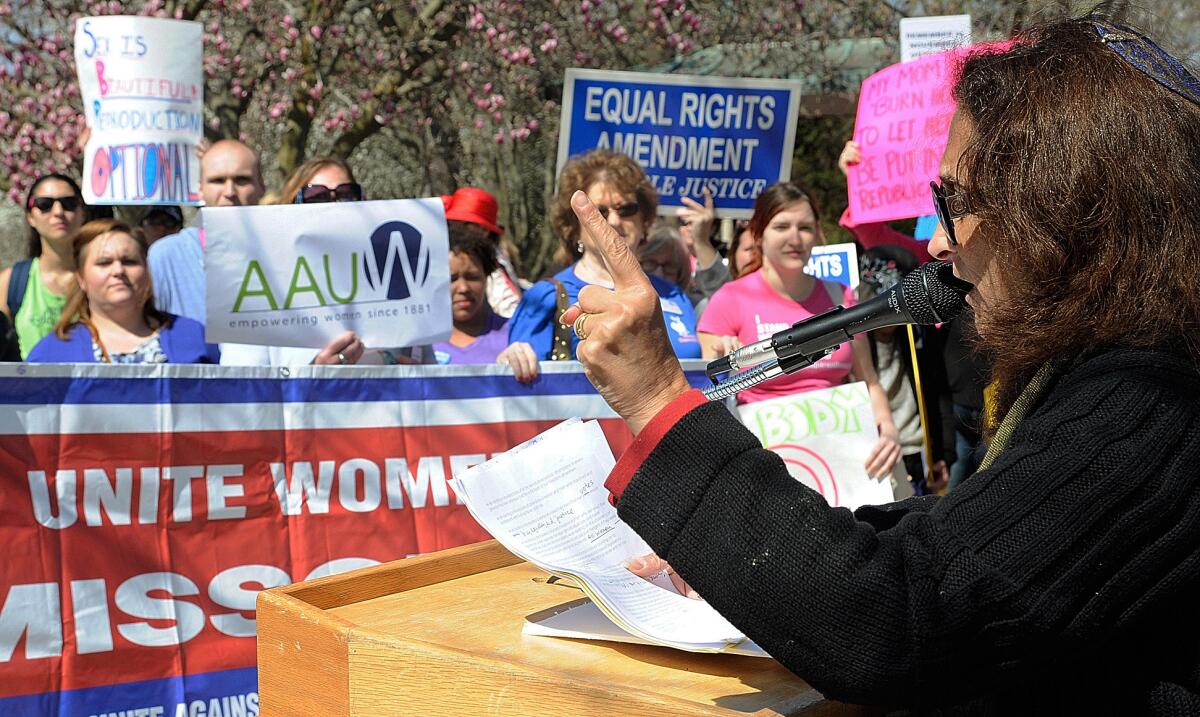Missouri lawmakers ready to override veto on 72-hour wait on abortions

- Share via
Missouri legislators will convene Wednesday to override a veto on a bill that requires women to wait 72 hours before having an abortion, which would add to the tide of abortion restrictions that have become law since the 2010 elections.
Gov. Jay Nixon vetoed House Bill 1307 in July, saying that he opposed the bill because it did not provide an exception for rape and incest.
“Lengthening the already extensive waiting period serves no demonstrable purpose other than to create emotional and financial hardships for women who have undoubtedly already spent considerable time wrestling with perhaps the most difficult decision they may ever have to make,” Nixon, a Democrat, said at the time.
Legislators in the Republican-dominated legislature say they have enough votes to override Nixon’s veto. Anti-abortion activists are planning a daylong vigil in the Capitol Rotunda to pray on the issue.
If the legislature overrides the veto, Missouri will become the third state, after Utah and South Dakota, to require a 72-hour waiting period. Utah’s law, passed in 2012, makes an exception for rape and incest.
Since 2010, many states have passed laws requiring some delays on abortion, according to the Guttmacher Institute, which advocates for access to abortion. These laws often also require women to receive counseling about fetal development, and five states require women to be counseled that personhood begins at conception.
This year, states also passed laws that require a parent accompanying a minor to provide proof he or she is that girl’s parent before an abortion is given, laws that make substance abuse during pregnancy a criminal assault, and laws that require doctors performing abortion to have admitting privileges at a nearby hospital.
Many of these laws have been challenged in court and are making their way through the legal system.
Missouri has some of the most restrictive abortion laws in the nation. In that state, abortion is covered in insurance policies for public employees only if the mother’s life is at risk, and three-quarters of women in the state live in counties with no abortion clinic.
Twitter: @AlanaSemuels
More to Read
Sign up for Essential California
The most important California stories and recommendations in your inbox every morning.
You may occasionally receive promotional content from the Los Angeles Times.











